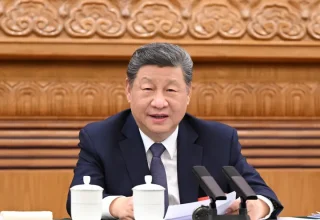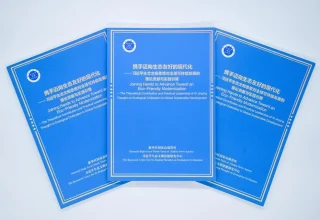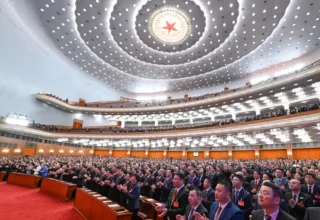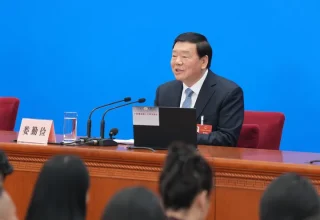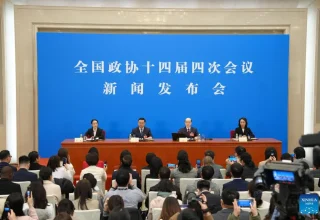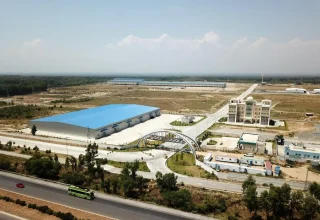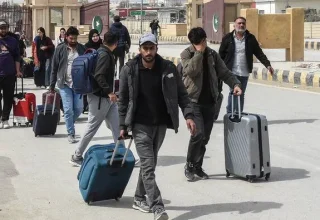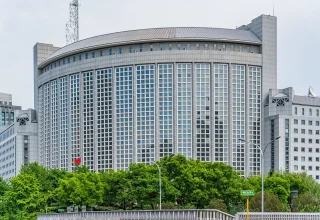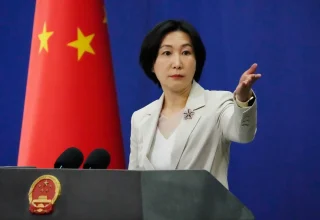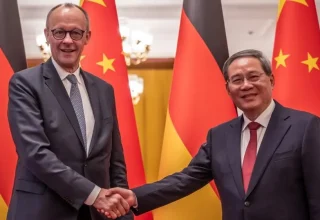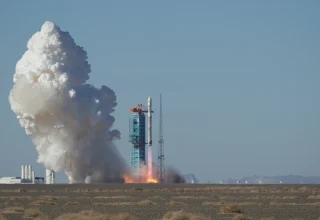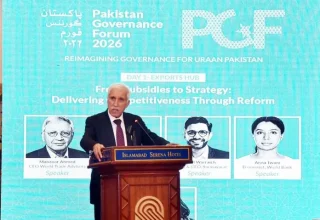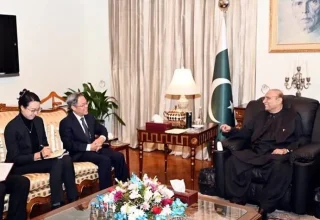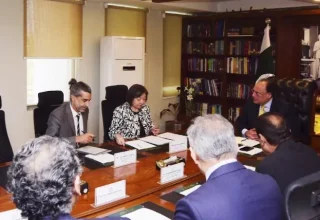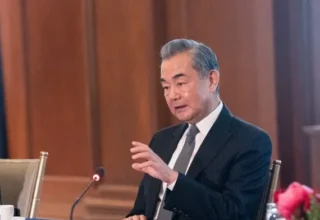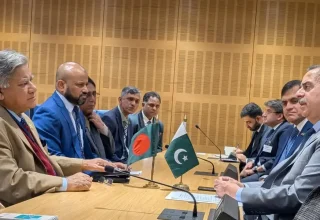
Pakistan has proposed the creation of a permanent Regional Maritime Dialogue bringing together countries from the GCC, Central Asia and Africa to coordinate on shared maritime challenges and strengthen collective influence at global forums.
The proposal was presented by Federal Minister for Maritime Affairs Muhammad Junaid Anwar Chaudhry during a high-level breakfast reception hosted by Pakistan at the International Maritime Organization (IMO) Headquarters in London. The reception drew participants from more than 173 countries, including over 100 maritime ministers, making it one of the most widely attended engagements during the IMO Assembly week.
During the event, the minister and IMO Secretary General Arsenio Dominguez jointly inaugurated the model of the PNSC Ship KARACHI, a memento gifted by Pakistan to the IMO. The vessel is one of three new ships the Pakistan National Shipping Corporation plans to add to its fleet, each named after major Pakistani cities: Karachi, Lahore and Quetta.
In his address, the maritime minister said the rapidly evolving global maritime landscape required regional mechanisms that could help countries jointly respond to operational, environmental, regulatory and technological pressures.
He said the proposed dialogue would prioritise reducing carbon emissions, improving safety at sea, coordinated search and rescue operations, and strengthening navigational safety. Pakistan, he noted, already serves as coordinator of NAVAREA IX, a critical navigational zone covering the Arabian Sea, Gulf waters and parts of the Indian Ocean.
NAVAREA IX is among the 21 global navigational areas under the World-Wide Navigational Warning Service (WWNWS) operated by the IMO and International Hydrographic Organization. These zones ensure ships receive timely alerts essential for safe passage.
Junaid Chaudhry also proposed establishing a Regional Maritime University and a Regional Maritime Training Institute to meet new demands created by IMO regulations, digitisation, autonomous shipping and artificial intelligence.
These institutions, he said, would introduce AI-enabled training and updated STCW standards, preparing seafarers from Pakistan and neighbouring regions for a technologically advanced and environmentally regulated future. “We want to equip our workforce for the next era of global shipping,” he noted.
The minister also announced plans for a Pakistan-made maritime terminal and highlighted progress on ongoing modernization projects, including accelerated work at the Gadani shipyard and industrial zone near Gwadar.
All initiatives, he said, are being implemented in line with IMO safety and environmental standards, reflecting the government’s commitment to sustainable development.
Reaffirming Pakistan’s ambition to become a regional maritime leader, the minister said Islamabad was working closely with Saudi Arabia, the UAE, Qatar, GCC states, Central Asian countries and African partners to build consensus on the proposed dialogue.
He argued that developing and climate-vulnerable nations need greater representation in global maritime decision-making. Pakistan has suffered three major climate-driven floods in recent years, causing severe economic and human losses.
“Our maritime policies must reflect our vulnerabilities,” he said, citing marine biodiversity, coastal resilience and environmental safeguards as rising national priorities.
Drawing parallels with Small Island Developing States (SIDS), a bloc of 39 climate-vulnerable island nations that operates as a collective voice at the IMO — Chaudhry said regional consensus could allow Pakistan and partner countries to advocate jointly on regulatory issues.
Pakistan, he added, is committed to working with all interested states to transform the idea into a durable, action-driven platform spanning three continents.






